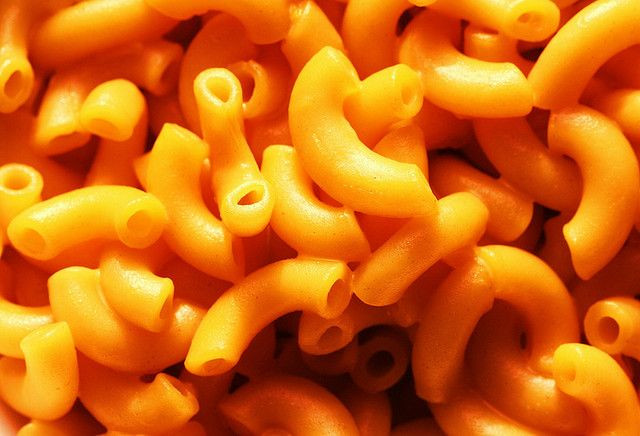Comfort Food Is A Myth: Emotional Eating Has No Psychological Effect On Bad Moods

For many adults, a bowl of mac and cheese has been synonymous with happiness since childhood. You might remember the “Kraft Macaroni & Cheese” television jingles in the mid-1990s. While ads portrayed impressionable kids singing “if you want to please them, all you got to do is cheese them,” a recent study published in the journal Health Psychology found the concept of “comfort foods” is all but a myth. Comfort foods have no psychological effect on bad moods than any other foods, or even compared to just sitting quietly without consuming calories.
"Negative moods naturally dissipate over time,” wrote Traci Mann, a psychologist at the University of Minnesota in the paper. “Individuals may be giving comfort food ‘credit’ for mood effects that would have occurred even in the absence of the comfort food.” This implies our comfort foods may not be the delicious “magic solution” to our problems.
Mann and her colleagues at the University of Minnesota sought to observe whether comfort foods provide psychological benefits, and if so, whether they improve mood better than comparison food or no food. The researchers carried out a series of four experiments, three of which were similar by design. In an introductory session, the participants were asked, “What foods would make you feel better if you were in a bad mood?” That question included other foods they enjoy but do not place in that category. A total of 100 students in different groups participated in two sessions scheduled at least one week apart to watch 18-minute videos of film clips meant to evoke “feelings of anger, fear, anxiety, and/or sadness.”
In one session, upon filling out a questionnaire designed to determine their mood, the participants were given a portion of their self-described comfort food. Chocolate, ice cream, and cookies were among the top three participants' choices. In another session, the participants were given either one of the non-comfort foods they enjoyed, like almonds or cashews (Experiment 1), a granola bar — seen as neutral food (Experiment 2) — or nothing at all as they sat in silence for three minutes (Experiment 3), according to PS Mag. All of the participants were then asked to fill out a mood questionnaire for a second time.
The findings revealed the participants’ moods improved over time, regardless of what they had eaten. Therefore, comfort food was found to have no effect on mood. “People are taking this very hard," Mann told NPR. "I guess it removes a very handy justification people have for eating comfort food."
This study suggests our association with comfort food and mood is purely based on a weak psychological effect. The feelings we associate with comfort food could be shaped by the foods we ate during childhood, which reminds us of home or celebrations. Another theory is satisfaction possibly derives from going to acquire the comfort food as opposed to eating it. This is something Mann’s lab study failed to analyze.
A contrasting 2011 study published in the journal Psychological Science found chicken soup may indeed be good for the soul. The participants who associated chicken noodle soup as comfort food expressed positive emotions and did not feel as lonely when prompted to write about a conflict with a close other. Whether it's soup or warm chocolate chip cookies, in this study, comfort foods fulfilled the participants’ stomach and their need to belong.
The psychological effect of comfort foods may all be in our heads, but we shouldn’t abandon our favorites as long as we don’t consistently try to eat our feelings. This helps us maintain healthier eating habits and avoid the excess consumption of high-calorie or high-fat foods when we’re trying to improve our moods. Remember to consume comfort foods responsibly, and take in Mann’ advice: "So you lose one justification for eating a cookie. Come up with another one."
Sources: Ahlstrom B, Mann T, Redden JP, Vickers Z, Wagner H. The Myth of Comfort Food. Health Psychology. 2014.
Gabriel S and Troisi JD. Chicken Soup Really Is Good for the Soul: “Comfort Food” Fulfills the Need to Belong. Psychological Science. 2011.
Published by Medicaldaily.com



























